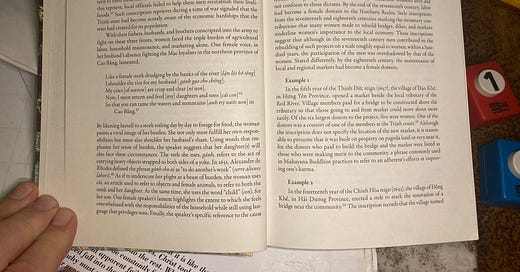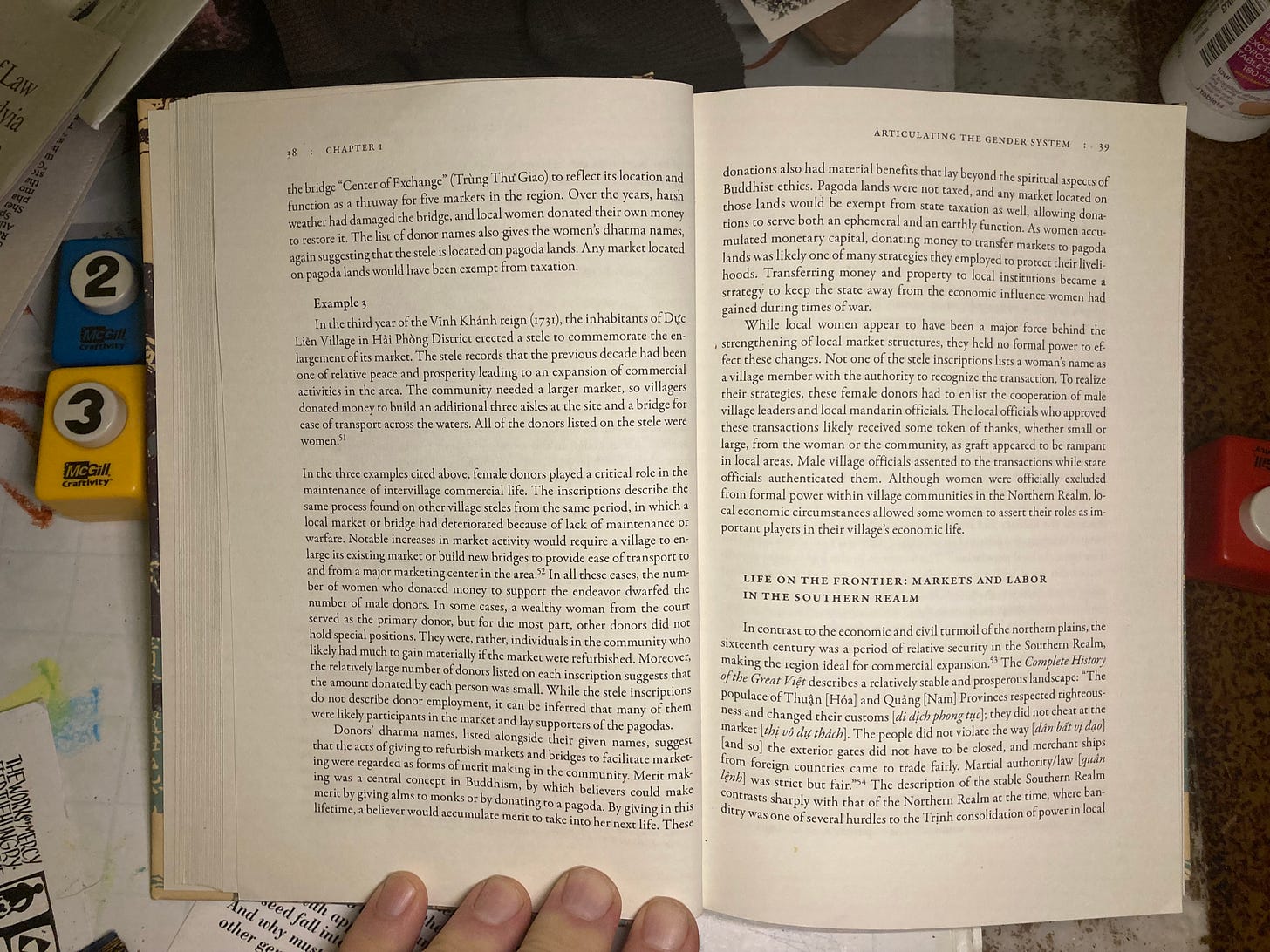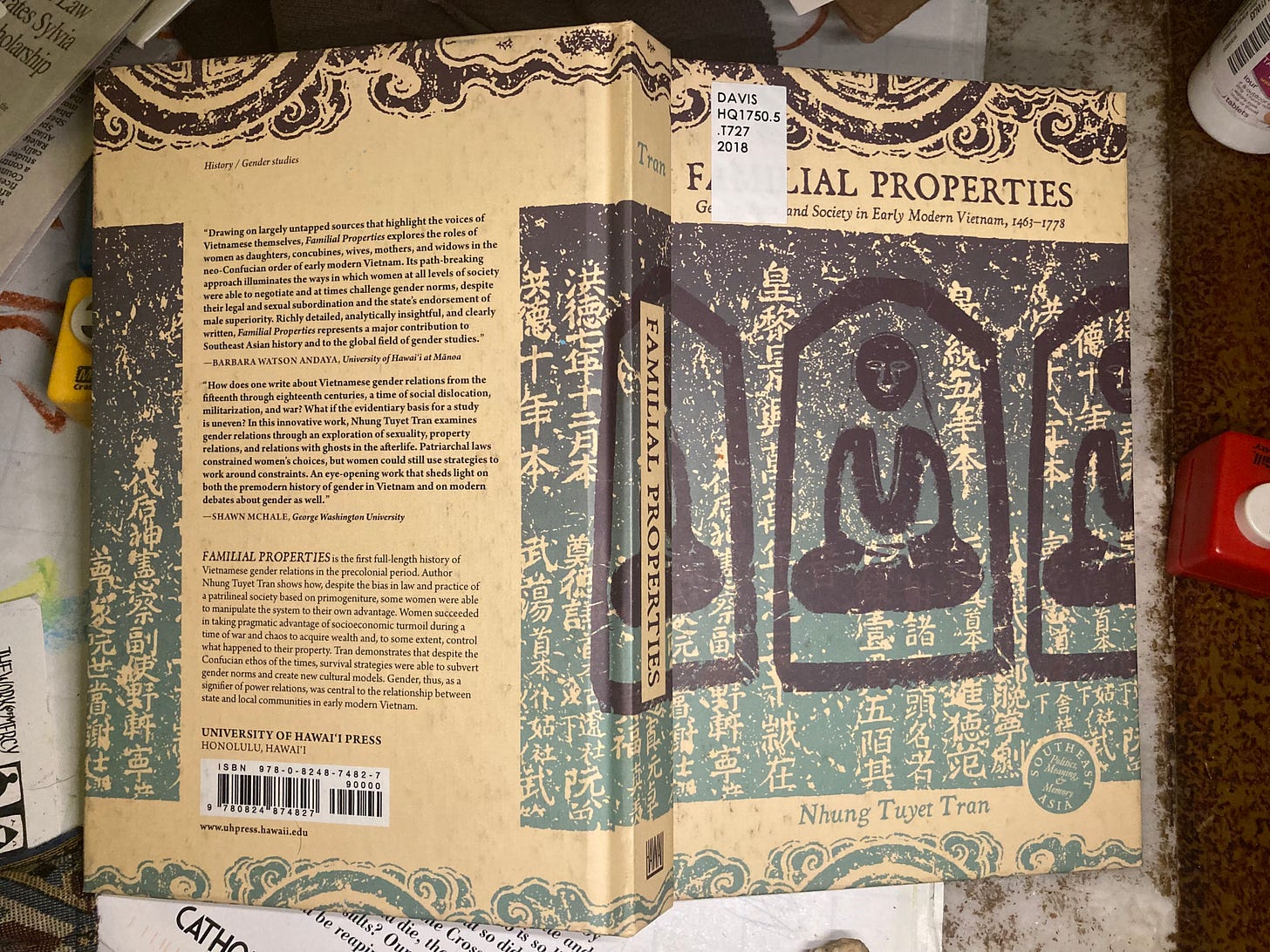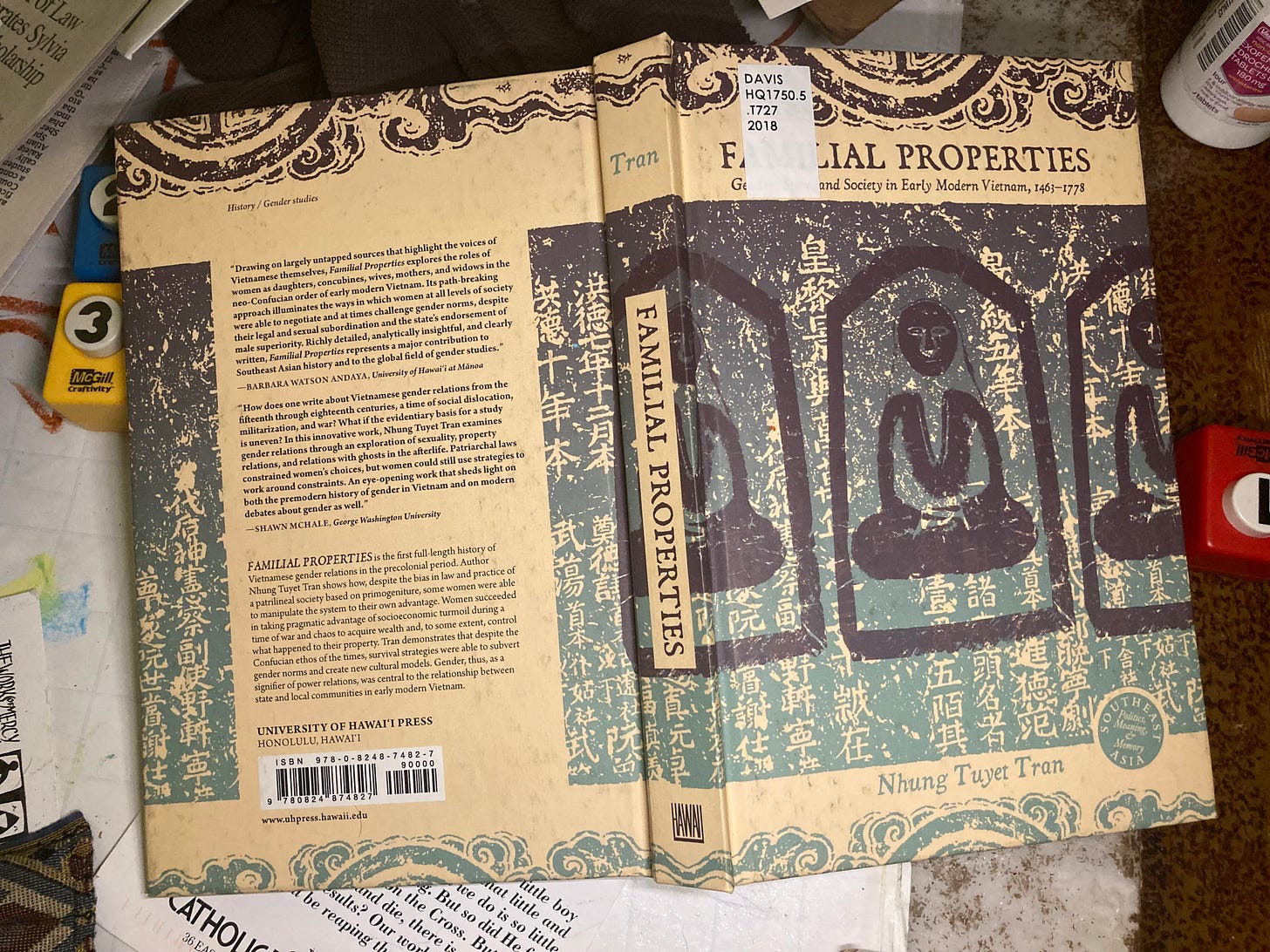Familial Properties: Gender, State, and Society in Early Modern Vietnam, 1463-1778 (v)
from historian Nhung Tuyet Tran and the University of Hawai'i Press
Harriet Morehead Berry paved the roads of North Carolina. 2 years of work increased the membership of the Good Roads Association by 22 times and its treasury by 6.
In 1921, at a change of administration, she won the bill establishing the state highway commission with authority and funding, then lost her job of 20 years with the Geologic and Economic Survey. Those in charge did not want to fund roads.
They reasoned that public works taxed only rich white men, those in charge, who each didn’t want to pay for any other rich white man let alone the common people to make any money. She moved on to promote the economy across the state, reporting on Industries and Resources from the newspaper in Charlotte.
She joined the state government to report Market News, then retired as superintendent of credit unions. Harriet had expanded the public sphere also as a suffragist.
That was the right of white women to vote. Since she was an activist in the one party in charge of North Carolina beginning the year of her birth, and because she died of natural causes, we know that Harriet served as ally with those who opposed black Americans voting.
We have, however, named in 2005 the stretch of Highway 86 from Hillsborough, where Mary Strayhorn Berry gave her birth in 1877, to Chapel Hill, where Harriet died in 1940, for the Reverend Doctor Martin Luther King, Junior, murdered in 1968.
By the side of that boulevard stands our 1986 memorial to the woman who built it, well, who provided for the road gangs. It reads, below the state seal,
“Harriet M. Berry (1877-1940) Champion of good roads. Her intensive lobbying led to 1921 law creating modern state highway system. Born 8 mi. North. Division of Archives and History 1986”
It is striking that her middle name, Morehead, is not spelled out. That is one of the great clan names of Chapel Hill.
Her mother was a Strayhorn, the clan of planters and previously-owned proletarians of Hillsborough, where the leading modern composer Billy Strayhorn’s marker stands. Neither Harriet nor Billy married.
They were individuals, moderns. We honor them in the public space they built for individuals. Take the A train.
In the research library off Harriet’s highway, at Chapel Hill, and in 5 other university libraries of the state, historian Nhung Tuyet Tran honors women who built and rebuilt bridges to markets. Nhung reports epigraphy on 3 steles these individuals erected to memorialize their collective contributions of 1657, 1693, and 1731.
You can read all about it in the first two photographs above: women making a public space, women asserting that they made that market, with money each made herself by trade in Viet Nam, so to speak, 2 and 3 centuries before the suffragist Harriet dragged North Carolina into the 20C. Early modern gender, state, and society, for sure.
This was the fifth Viet Nam letter of 7 so far addressed to Familial Properties: Gender, State, and Society in Early Modern Vietnam, 1463-1778 by Nhung Tuyet Tran.
The first letter judges the book by its cover, on March 30, 2022.
The second letter reads the title page, on April 30, 2022.
The third letter discusses Vietnamese women and Southeast Asia in light of the book’s introduction, on June 1, 2022.
The fourth letter is the first with the poem, “Like a female stork drudging by the banks of the river,” on July 18, 2022.
The fifth is the second letter to discuss epigraphy from steles women raised in the markets they built, on December 12, 2022.
The sixth is the third letter to show and the second to discuss “Like a female stork drudging by the banks of the river,” on December 15, 2022.
The seventh letter, on March 27, 2023, presents 2 more poems to make the point that the work of history is also an anthology.
Viet Nam letters respects the property of others under paragraph 107 of United States Code Title 17. If we asked for permission it wouldn’t be criticism. We explain our fair use at length in the letter of September 12, 2022.
The colophon of these Viet Nam letters, directly above, shows the janitor speaking with poet David A. Willson on a Veterans Day.









